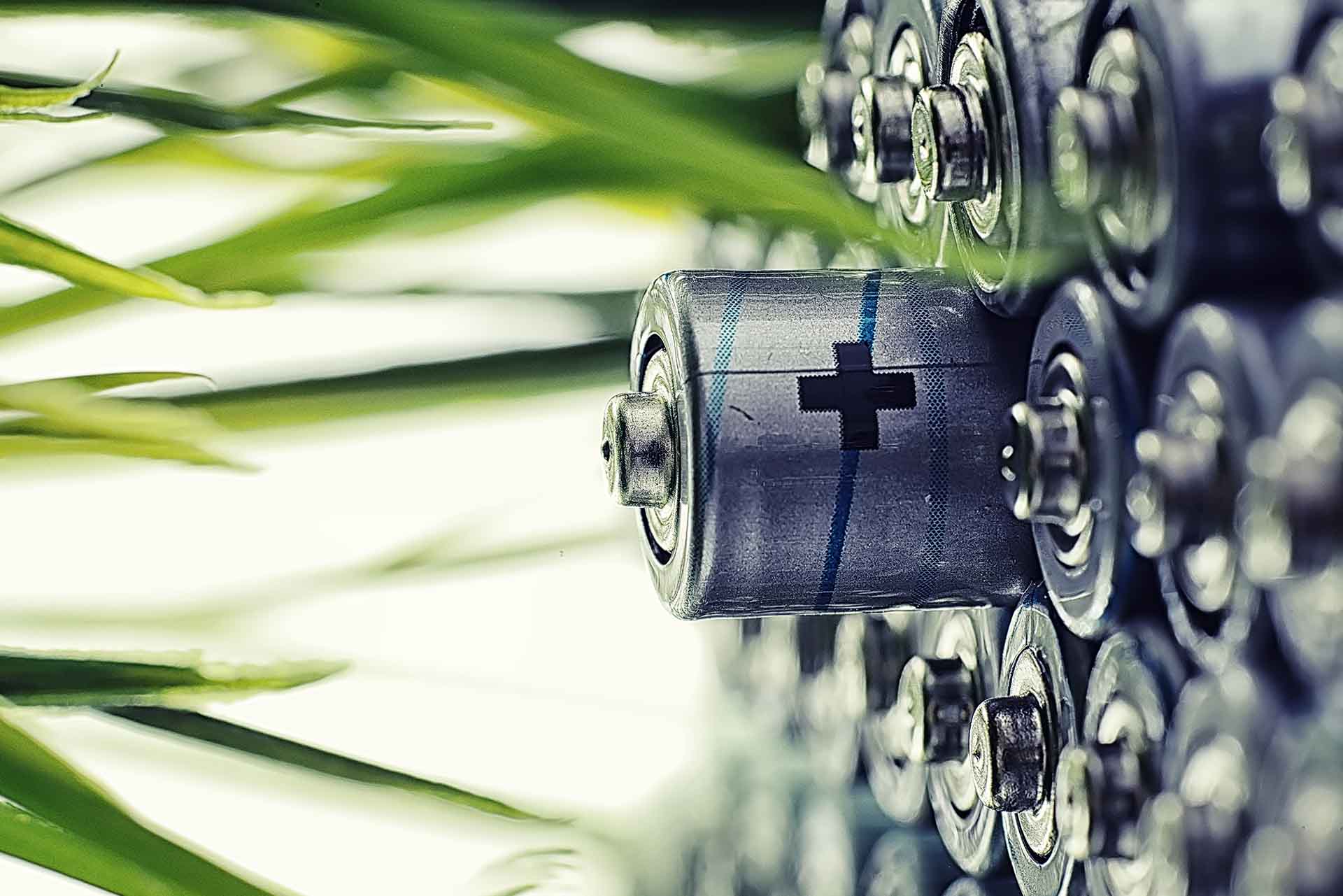There is no way back: to arrive at a sustainable society, we need to trade in fossil fuels for renewable energy sources such as wind and solar energy. But electricity cannot be just collected in storage tanks, in the same way as fossil fuels. To be able to make the transition, we will increasingly be dependent on battery technologies that are capable of storing green electricity.
Amongst others, we will increasingly be requiring lithium-ion batteries for this. Currently, lithium-nickel-manganese-cobalt oxide (NMC) batteries are the most common choice for things such as electric cars, but there is also currently a growing interest in another type of lithium-ion batteries: lithium iron phosphate (LFP) batteries.
LFP batteries have a lower capacity than NMC batteries, but they have a lot else going for them. Crucially, since they don’t contain highly expensive metals such as cobalt and nickel, they are cheaper. They also have a long service life, require little maintenance, are very safe, light, and have an improved charge and discharge efficiency. It is no wonder they are becoming ever more popular among developers of electric vehicles, and are increasingly being used for electric tools, stationary batteries, and household appliances.
“We can already regain the cobalt and nickel out of NMC batteries in Europe, but these essential materials in LFP batteries are currently mostly lost when waste is processed here.” – Jeroen Spooren
A major challenge remains, however: currently, there isn’t an economically viable, industrial-scale recycling process for LFP batteries in Europe. That’s highly problematic, since these batteries contain critical raw materials – lithium, phosphorus, and graphite – that are rapidly spiking in demand and are difficult to mine in Europe.
“We can already regain the cobalt and nickel out of NMC batteries in Europe, but these essential materials in LFP batteries are currently mostly lost when waste is processed here,” explains Jeroen Spooren, senior researcher at the Flemish research center VITO. “It’s a big challenge to do this is in an economically viable way.” There are also environmental issues to be considered, as these batteries contain polluting substances that should be removed during the recycling process, as well as a financial and strategic incentive, as there is a looming lithium shortage in the world (driven by a rise in demand for these batteries, among other things)
Setting things in motion
To deal with this issue, VITO took the lead in setting up the European ACROBAT project, with a concrete goal to develop innovative and environmentally friendly processes and separation techniques for end-of-life LFP batteries. To do so, VITO teamed up with another Belgian research institute, the SIM2 Institute of KU Leuven, with the German institute Fraunhofer ILT, the Italian organization ENEA, and the German battery recycling company Accurec Recycling.
“To make sure that our research is in line with the needs of the industry, and our results are efficiently valorized, we have also set up an industrial advisory board that consists of leading companies in this field,” says Spooren, who coordinates the ACROBAT project. The companies in this industrial advisory board are Umicore, Bebat, Sortbat and Electrocycling.
Currently, there isn’t an economically viable, industrial-scale recycling process for LFP batteries in Europe.
The ACROBAT project, which only started in the summer of 2022, will run for two years. It has a total budget of around 1.4 million euros, funded by the different regions of the partner organizations, including 350.000 euros contributed by the Flemish region. The goal is to start developing new techniques that will make it possible to recycle more than 90% of the critical raw materials in LFP batteries by 2030. “We are setting things in motion, after which bigger follow-up projects should be set up to further develop our findings.”
A more independent Europe
To reach their goals, Spooren explains that the ACROBAT experts will focus on hydrometallurgy rather than on pyrometallurgy. While hydrometallurgy involves using water-based solutions for the extraction of metals, pyrometallurgy is a heat-based extraction process. “Up to now, pyrometallurgy has been used more often for battery recycling, but that trend is changing,” says the VITO researcher.
The different partners have their specific area of expertise and will concentrate on particular parts of the recycling process. VITO and SIM2 will work together to recover graphite with a physical separation process. VITO will also recycle used LFP cathode material into new high-quality LFP material and SIM2 will focus as well on the recovery of lithium and its conversion into a valuable product.
The German company Accurec will collect, dismantle, and pre-treat the batteries with a tailored process. Laser technology specialist Fraunhofer ILT, also from Germany, will develop continuous in-line characterization of the battery-active material to ensure its quality for the next recycling steps. The Italian partner, ENEA, will study the electrolyte valorization to recover the organic solvents and the lithium-containing salt.
Read this article to learn about an innovative solution for the production of green hydrogen!
The project has garnered support as part of the EU’s goal of obtaining stronger independence concerning production processes. “Lithium now comes from outside of Europe, with Australia and Chile as biggest producers,” says Spooren. “There are ongoing projects to mine lithium in different European countries, such as France and countries in the north of Europe, but efficient recycling techniques will in any case be a major advantage.”


